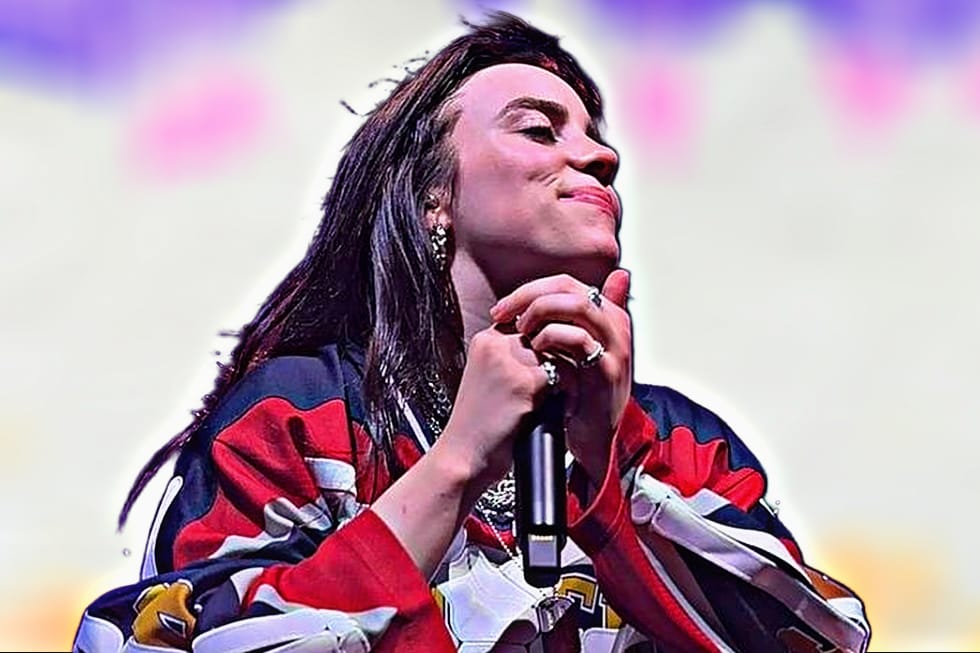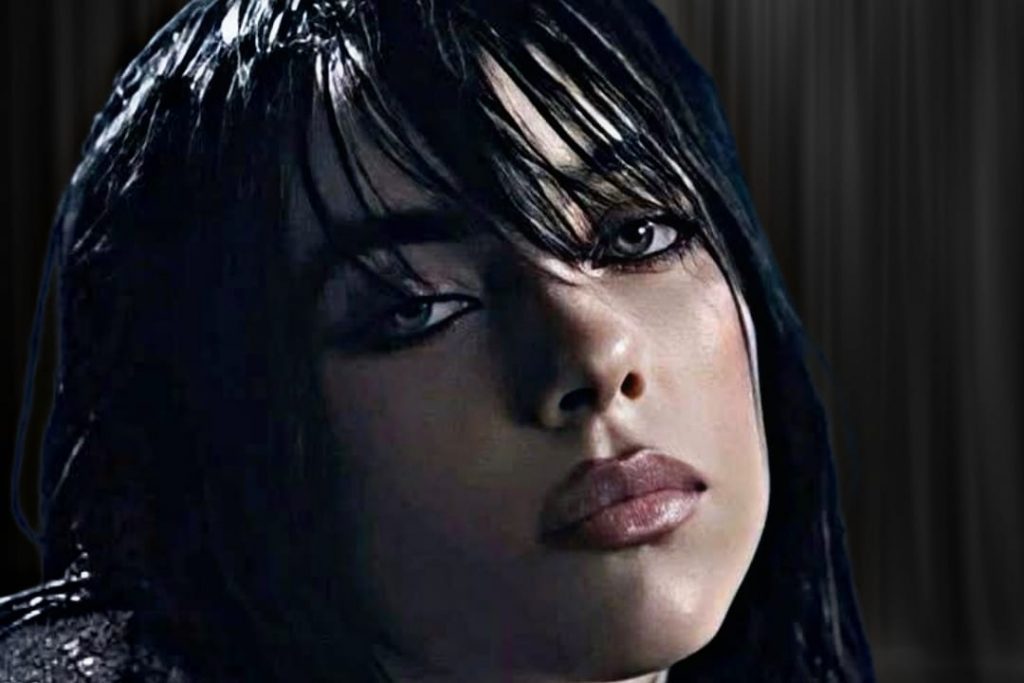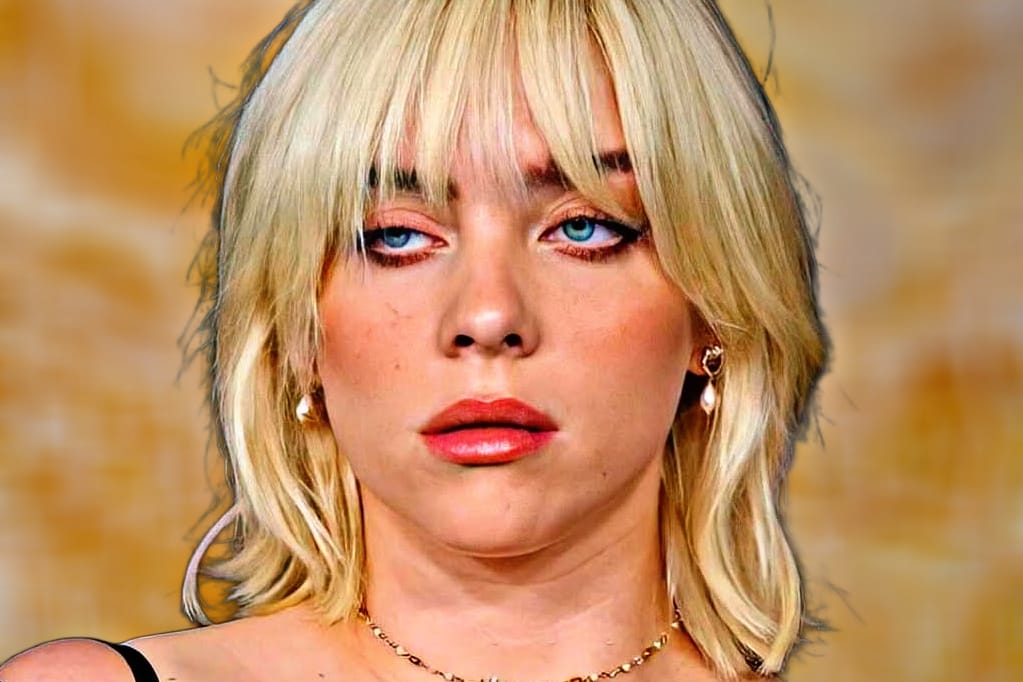Billie Eilish is not just a name in the music industry; she represents a cultural shift. A prodigious talent with an otherworldly aura, Billie has become a symbol of authenticity, rebellion, and innovation. From her humble beginnings in Los Angeles to dominating global charts, she has become one of the most influential musicians of her generation. But her journey is not just about record-breaking albums or viral hits—it’s about how Billie Eilish’s raw talent and unique artistic vision have forever altered the landscape of modern music.
In this article, we will explore Billie Eilish’s rise to stardom, her musical evolution, her unique sound, and the impact she has had on both music and popular culture.
Early Life: A Star is Born

Billie Eilish Pirate Baird O’Connell was born on December 18, 2001, in Los Angeles, California, to a family deeply embedded in the world of music and entertainment. Her parents, Maggie Baird, an actress and screenwriter, and Patrick O’Connell, an actor, provided Billie and her brother Finneas O’Connell with a rich creative environment. Both Billie and Finneas were homeschooled, which allowed them to focus on their music and foster their artistic talents from an early age.
Billie Eilish musical education was informal but incredibly rich. She was introduced to a wide variety of music, ranging from The Beatles to Lana Del Rey. Growing up, Billie was often inspired by her older brother, Finneas, who was already experimenting with music production. Finneas would later become Billie’s primary collaborator, producing many of her hits. The sibling duo’s relationship is crucial to understanding Billie’s artistic process; their bond and shared creative vision have shaped some of the most iconic songs in modern music.
Billie Eilish first taste of musical success came when she was just 13 years old, when she uploaded her debut single, “Ocean Eyes”, to SoundCloud. Written by Finneas and originally intended as a song for his band, “Ocean Eyes” became an instant viral hit. The song, a melancholic ballad about a broken relationship, showcased Billie’s haunting voice and ability to convey deep emotional resonance with minimalistic instrumentation.
Within months, the song garnered millions of streams, propelling Billie into the spotlight. By 2016, “Ocean Eyes” was officially released as a single, and it quickly amassed widespread attention from both fans and industry professionals. The song’s success helped to establish Billie Eilish as a unique talent on the rise. But this was only the beginning.
Debut EP: Don’t Smile at Me

In August 2017, Billie released her debut EP, Don’t Smile at Me, which marked the official arrival of a new pop star. The EP blended pop, electronic, and alternative sounds with introspective lyrics that spoke to themes of loneliness, self-doubt, and the complexities of youth. The project was a reflection of Billie’s raw, unfiltered emotions, and it quickly earned critical acclaim.
The EP featured several standout tracks, including “Bellyache” and “idontwannabeyouanymore”. In particular, “Bellyache” garnered significant attention for its darkly playful lyrics and minimalist production. The song’s quirky nature—paired with a catchy, infectious chorus—showcased Billie’s ability to subvert typical pop song structures.
One of the most intriguing elements of Don’t Smile at Me was its willingness to experiment with genre and sound. Billie Eilish was not confined to the standard boundaries of pop music; she carved out her own lane by blending elements of indie, electronic, and alternative genres into a distinctive sonic landscape.
This EP’s success set the stage for Billie’s subsequent rise to superstardom. It also proved that Billie Eilish was more than just a passing trend—she was an artist with a unique voice and a distinct artistic vision.
Breakthrough: When We All Fall Asleep, Where Do We Go?
In March 2019, Billie Eilish released her debut full-length album, When We All Fall Asleep, Where Do We Go?, an album that would become a cultural phenomenon. The album’s success catapulted Billie Eilish into the upper echelons of pop stardom, earning her recognition from a global audience and critical acclaim. It marked the culmination of years of hard work, experimentation, and growth.
A New Sound for the New Decade
When We All Fall Asleep, Where Do We Go? was a groundbreaking album in many ways. It represented a bold departure from the mainstream pop sound that dominated the charts. Instead of relying on high-production beats and over-the-top hooks, Billie Eilish and Finneas embraced a minimalist approach, creating eerie, atmospheric tracks that felt both intimate and haunting. The album combined dark, introspective lyrics with genre-defying production, establishing Billie as an artist willing to push boundaries.
Songs like “Bad Guy”, “Bury a Friend”, and “All the Good Girls Go to Hell” became instant hits. “Bad Guy,” in particular, was a global chart-topping success, with its infectious bassline, quirky rhythm, and rebellious lyrics. The track was a perfect embodiment of Billie Eilish unique approach to pop music, blending playful, almost mischievous energy with a deeper commentary on societal norms and self-perception.
The album’s success was not limited to commercial achievement. When We All Fall Asleep was praised for its honest exploration of mental health, self-identity, and the pressures of fame. Billie Eilish’s ability to openly discuss topics such as depression, anxiety, and loneliness resonated deeply with a generation that felt alienated by the glossy, perfect image often projected by celebrities.
Billie Eilish raw and vulnerable persona struck a chord with fans. She became not just a pop star, but a voice for those who felt misunderstood or out of place. In an era of superficiality and curated social media profiles, Billie’s refusal to conform to industry norms made her an icon for authenticity.
Breaking Records and Winning Awards
The success of When We All Fall Asleep, Where Do We Go? was meteoric. The album debuted at number one on the Billboard 200 and went on to sell millions of copies worldwide. Billie became the youngest artist in history to win the Grammy Award for Album of the Year at the 2020 Grammys, where she also took home Record of the Year and Song of the Year for “Bad Guy.” Billie’s triumph at the Grammys cemented her status as one of the biggest names in contemporary music.
The success of the album also helped to redefine what mainstream pop music could be. Billie Eilish unorthodox style challenged the status quo, making it clear that there was room for darker, more experimental sounds in the mainstream. She was proof that an artist didn’t have to fit into a specific mold to achieve success. Her rise to fame was a testament to the power of individuality and creativity in an often cookie-cutter industry.
Billie Eilish’s Artistic Evolution: From Pop Icon to Auteur

After the success of her debut album, Billie Eilish’s growth as an artist has continued to be a fascinating journey. Billie’s second studio album, Happier Than Ever, released in July 2021, marked a significant shift in her musical direction. While still retaining her signature melancholic style, the album introduced new elements of jazz, indie rock, and even classic pop balladry.
A New Sound
In Happier Than Ever, Billie Eilish explored themes of fame, self-reflection, and relationships, but with a more mature lens. The album’s lead single, “Your Power”, was a stark departure from her earlier work. A poignant commentary on the abuse of power and manipulation, the song features a softer, more acoustic sound that highlights Billie’s growing versatility as an artist.
The title track, “Happier Than Ever”, was another standout moment. The song begins with a gentle, dreamy melody before erupting into a raw, cathartic climax. This sonic transformation mirrored Billie’s own growth as she navigated her rise to fame and the emotional toll it had taken on her.
Critics hailed Happier Than Ever for its maturity and emotional depth. It demonstrated that Billie Eilish was not only capable of evolving musically but also growing as a person and an artist. The album debuted at number one on the Billboard 200 and received widespread acclaim from critics and fans alike.
A Global Icon
By the time Happier Than Ever was released, Billie Eilish had already become a global sensation. Her influence reached far beyond the music charts; she became a fashion icon, an advocate for mental health awareness, and a role model for young people around the world.
Billie Eilish unique style—characterized by oversized clothing, neon green hair, and bold fashion choices—has set trends and inspired countless fans. Her appearance is a reflection of her rejection of traditional beauty standards and her commitment to self-expression. Billie has also been vocal about her struggles with body image and self-esteem, often using her platform to promote messages of self-acceptance.
Her advocacy for mental health has further endeared her to fans. Billie Eilish has been open about her own struggles with depression, anxiety, and body image issues, using her music and public persona to shed light on important issues that are often overlooked in the entertainment industry. By being unapologetically herself, Billie has created a space for others to do the same.
Billie Eilish’s Legacy: Changing the Music Industry
Billie Eilish’s impact on the music industry is undeniable. Her success has opened doors for artists who don’t fit the traditional pop mold, showing that there is room for alternative sounds and introspective lyrics in mainstream music. Billie has redefined what it means to be a pop star, proving that you don’t have to conform to industry standards or societal expectations to achieve success.
Her willingness to experiment with sound, her focus on meaningful lyrics, and her commitment to authenticity have made her a trailblazer in the industry. Billie Eilish has shown that music can be both commercial and deeply personal, that pop music can be a platform for social commentary, and that it’s possible to be both an artist and a human being.
As Billie Eilish continues to evolve, both musically and personally, her influence will only grow. Whether she’s breaking records, changing the conversation around mental health, or challenging traditional ideas of fame and beauty, Billie Eilish’s legacy is one of authenticity, innovation, and fearlessness.
Conclusion
Billie Eilish’s rise to fame is a testament to her extraordinary talent, her fearless creativity, and her ability to connect with her audience on a deeply emotional level. From her viral hit “Ocean Eyes” to her groundbreaking albums When We All Fall Asleep, Where Do We Go? and Happier Than Ever, Billie has proven that she is more than just a pop star—she is an artist who is changing the face of modern music. With her unique voice, innovative sound, and commitment to authenticity, Billie Eilish has carved a lasting place for herself in the history of music. And with the promise of more music to come, there’s no telling just how far she’ll go.

